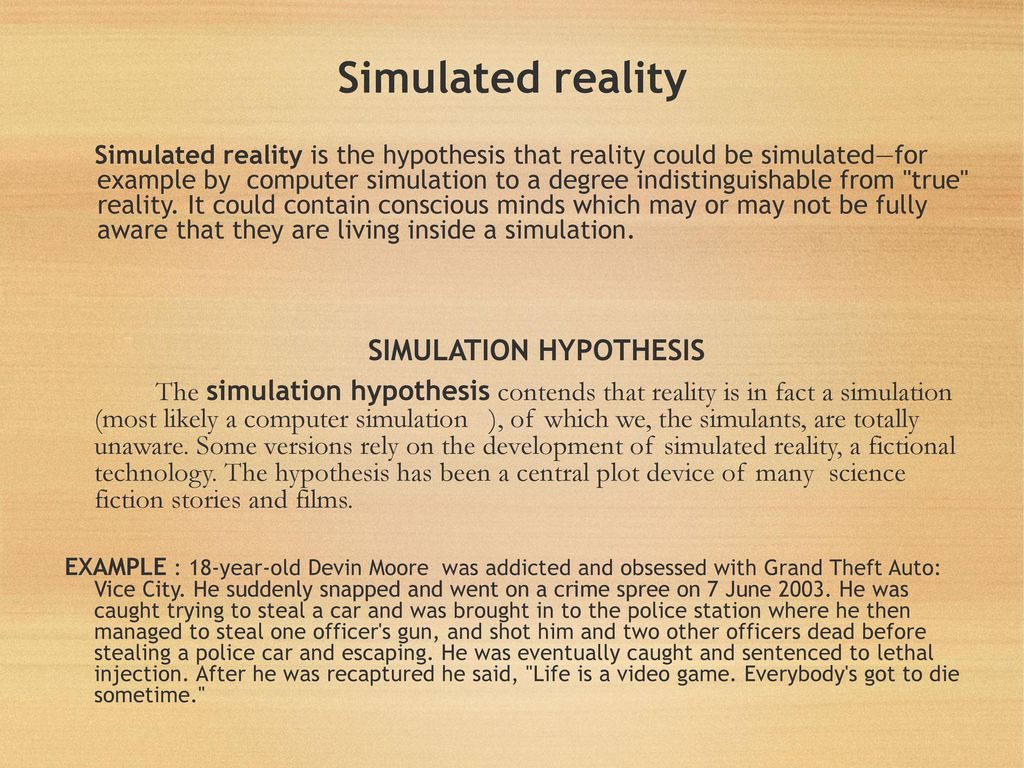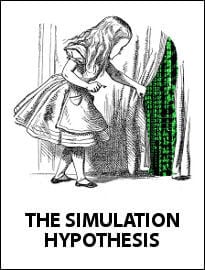

The Simulation Argument implies that our descendants will re-introduce suffering via their ancestor-simulations, or they never opted to abolish suffering in the first instance." If this is the case, then our simulated status entails that posthumans will not eradicate suffering. According to the Simulation Argument, there is a significant likelihood that we ourselves are living in an ancestor-simulation run by our advanced descendants.

"HI claims that once the biological substrates of suffering have been abolished, it is 'inconceivable' that suffering will ever be recreated. Oxford: Oxford University Press.The Simulation Argument and the future of suffering: Many worlds: everett, quantum theory and reality. Saunders, Simon, Barrett, J., Kent, A., & Wallace, D. Doomsday Bishop Ussher and simulated worlds’. Probability in the everett world: comments on wallace and greaves. Past longevity as evidence for the future. The Doomsday Argument and the number of possible observers. Is the end of the world nigh? Philosophical Quarterly, 40, 65–72. Self-locating belief and the Sleeping Beauty problem. Philosophical Quarterly, 42, 78–84.Įlga, A. Philosophical Quarterly, 53, 83–91.īostrom, N., & Kulczycki, M.

The Doomsday Argument and the self-indication assumption: reply to Olum. Are you living in a computer simulation? Philosophical Quarterly, 53, 243–255.īostrom, N., & Cirković, M. Anthropic bias: observer selection effects in science and philosophy. The doomsday argument is alive and kicking. Or why isn’t the end nigh, and you’re not living in a simulation.īostrom, N. But there are also significant disanalogies between the two arguments, and I argue that these disanalogies mean that the Simulation Argument succeeds and the Doomsday Argument fails.Īranyosi, I.A. Indeed, the two arguments do have some structural similarities. Both are cases where reflecting on one’s location among a set of possibilities yields a counter-intuitive conclusion-in the first case that the end of humankind is closer than you initially thought, and in the second case that it is more likely than you initially thought that you are living in a computer simulation. Or why isn’t the end nigh, and you’re not living in a simulation, Richmond 2008, Doomsday, Bishop Ussher and simulated worlds, Ratio, 21:201–217 Bostrom and Kulczycki 2011 A patch for the Simulation Argument, Analysis, 71:54–61). The Doomsday Argument and the Simulation Argument share certain structural features, and hence are often discussed together (Bostrom 2003, Are you living in a computer simulation, Philosophical Quarterly, 53:243–255 Aranyosi 2004, The Doomsday Simulation Argument.


 0 kommentar(er)
0 kommentar(er)
